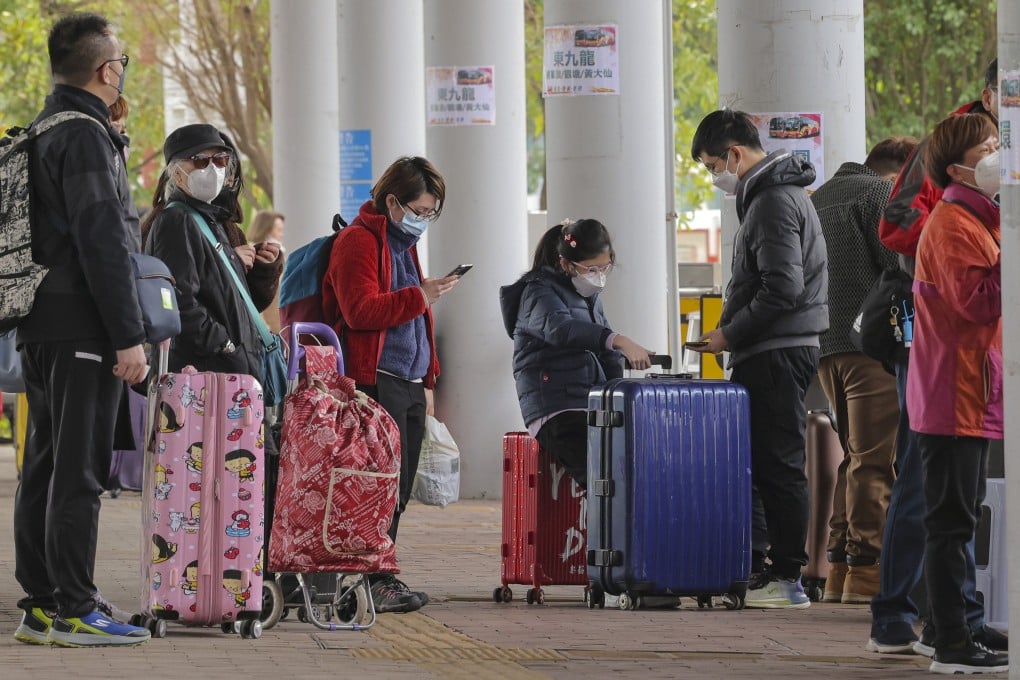Coronavirus: lessons to be learned, John Lee says of Hong Kong Covid policy ahead of full border reopening with mainland China from Monday
- PCR tests dropped for cross-border travellers with no history to overseas places in past week
- Chief Executive John Lee announces details at press conference following HKMAO statement, says he has ‘fulfilled election promise’

Key points:
-
Full border reopening between mainland China and Hong Kong to resume from Monday
-
No more quotas and pre-departure Covid-19 test for travellers; no booking is required to cross the border
-
All border crossing points, including Lo Wu, Heung Yuen Wai-Liantang and Lok Ma Chau, will reopen
-
Pre-departure rapid antigen tests (RAT) for travellers from Macau to Hong Kong will be dropped
-
Vaccination requirements for overseas arrivals will be lifted
-
RAT pre-departure tests for travellers from overseas and Taiwan will remain for now to manage risks
-
Gradual resumption of travel for cross-border students from next Wednesday, starting with secondary school pupils and later for primary level, kindergartens and special schools
-
Vaccination will still be the top priority, and regular jabs will be needed in the future
Mainland China will fully reopen its borders with Hong Kong and Macau from Monday with all Covid-19 restrictions dropped and no quotas imposed on arrivals from either side, state and city officials have announced.
The State Council’s Hong Kong and Macau Affairs Office on Friday said in a statement that people entering the mainland from the two special administrative regions, and with no overseas travel history in the week before departure, would no longer be required to undergo a polymerase chain reaction (PCR) test to cross the border.
Those who have been overseas in the past week will still need a PCR test done 48 hours before departure from Hong Kong or Macau to the mainland.
Travellers will also need to declare their health status when crossing the border. Those reporting symptoms such as fever will need to undergo testing by mainland customs. People who test positive can isolate at home or in other premises, or seek medical treatment.
